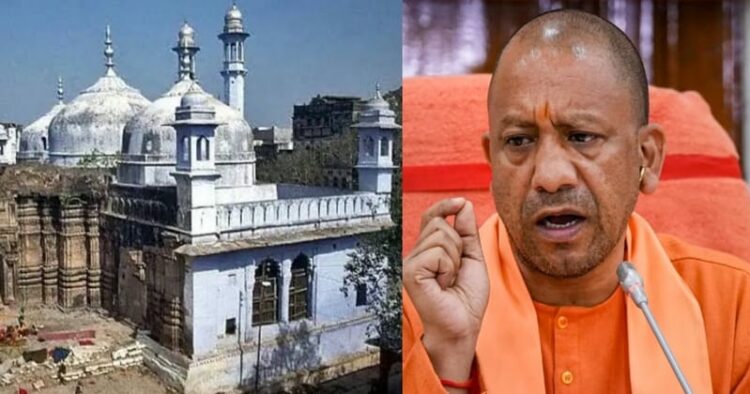In an interview with news agency ANI on July 31, Uttar Pradesh Chief Minister Yogi Adityanath said the Government wants to resolve the long-standing issue. UP CM Yogi Adityanath spoke about the Gyanvapi dispute case and asked what a trishul (trident) was doing on the Gyanvapi premises. He said that the Muslim petitioners should come forward with a resolution to fix a “historical blunder”.
Notably, the Allahabad High Court has reserved its order in the case concerning the Muslim side’s challenge to the Varanasi Court’s order directing the Archaeological Survey of India (ASI) to conduct a scientific investigation of the Gyanvapi premises, excluding the stayed areas. The court will pronounce its verdict on August 3 and the interim stay on Varanasi Court’s order would continue till then.
The court asked the ASI official appearing before the court to define ‘excavation,’ during today’s hearing. The official replied that the term had not been defined in the act, however, the dictionary meaning is khudai (digging). The Chief Justice further asks if excavation is possible without digging or not, the ASI official responds that the attempt to find antiques of archaeological nature is called excavation with or without digging.
The court further asks if ‘drilling’ has been defined in the act, and the ASI official responds replied no. The ASI official submits that the ASI would not cause damage to the structure. “At best brushing may be needed. There will be no scratching or damage,” the official said. The court then asked by when the ASI would complete the survey, to which the ASI official responded that it would be completed by August 4, 2023.
On July 26, the Allahabad High Court heard the case concerning the challenge to the Varanasi Court’s order directing the ASI to conduct a scientific investigation of the Gyanvapi premises, excluding the stayed areas.
Earlier, in October 2022, a ‘Shivling’ was found in the premises near the ‘wazukhana’ during the videography survey of the premises, which was ordered by the court.
However, the Muslim side said that the structure found was a ‘fountain’. The Hindu side had then submitted an application on September 22 that sought a carbon dating of the object they claimed to be ‘Shivling’.
Carbon dating is a scientific process that ascertains the age of an archaeological object or archaeological finds.
Earlier on September 29, the Hindu side demanded a scientific investigation of the ‘Shivling’ by the Archaeological Survey of India and the carbon dating of ‘Argha’ and the area around it.
The court had reserved the order in the Gyanvapi Mosque-Shringar Gauri case after hearing both sides’ arguments.



















Comments